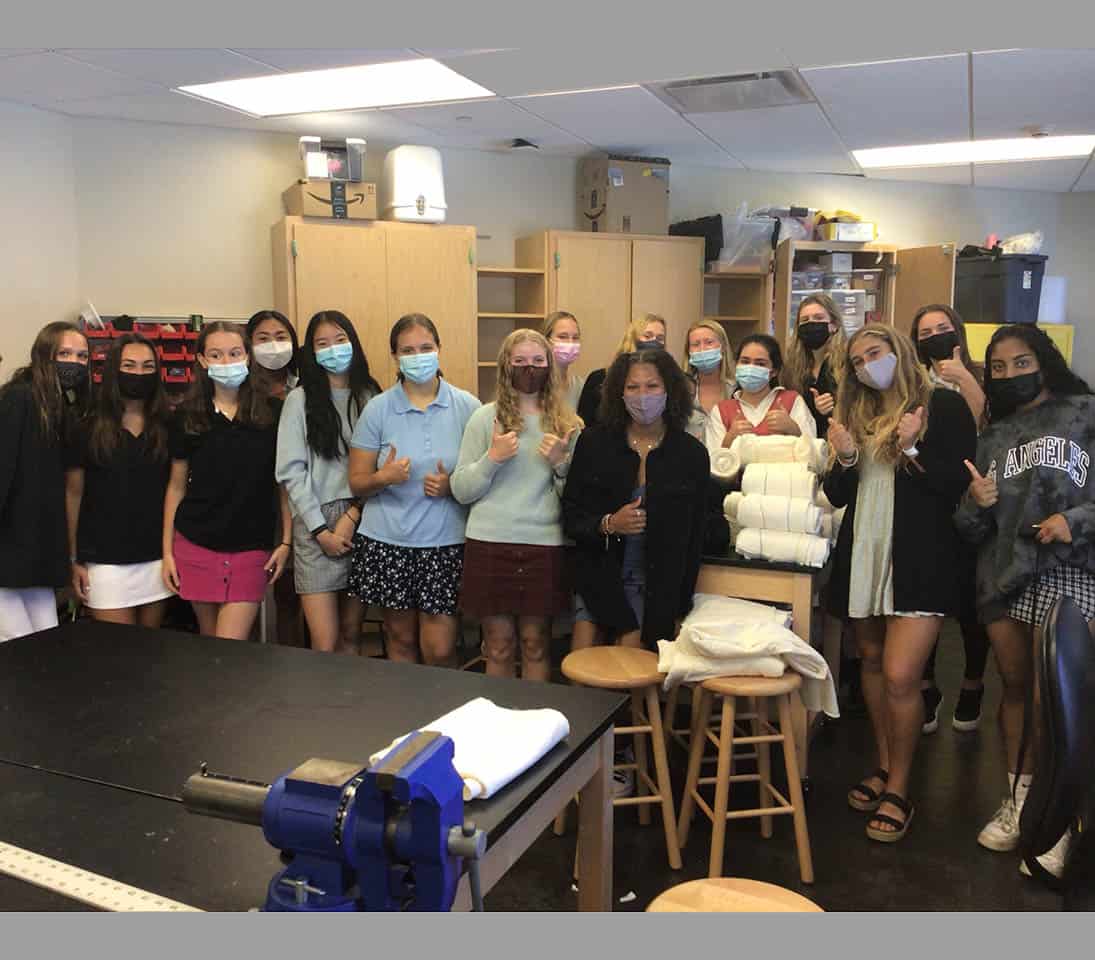The Pennington School’s Women in STEM Solving Problems (WISSP) group was selected as one of 20 finalists in the MIT Solv[ED] Youth Innovation Challenge.
The competition invited international participants 24 and younger to submit tech-based solutions that address one of their four pillars: learning, health, sustainability, and economic prosperity, as well as other unmet needs around the world.
WISSP’s submission, entitled “Hybrid Sanitary Napkin for Economic Change,” detailed the initiative they have been engineering since spring 2019: a part disposable/part reusable product. This hybrid design keeps menstruating girls in the Dzaleka Refugee Camp in Malawi from missing school while also offering refugees the opportunity to work towards economic independence through the making and selling of the reusable pads, according to information provided by the Pennington School.
The MIT Solv[ED] Youth Innovation Challenge application process required the Pennington group to answer questions about their problem, propose a solution, and describe future plans, as well as pitch the solution to judges and complete a Q & A interview.
The competition received over 800 submissions from 148 countries, according to the statement.
Over 30 current Pennington students and eight Pennington alumni have contributed to the project this school year, with four girls — eleventh-graders Frani Pendus, Gloria Liu, and Maygala Selvisudhakar, and tenth-grader Mia Seyfarth — taking the lead on the MIT Solv[ED] application.
The faculty advisor for the group is Susan Wirsig, the director of Pennington’s Applied Science Certificate Program.
More information about The Pennington School can be found at www.pennington.org/, and more information about WISSP’s initiative can be found at bit.ly/PenningtonWISSP.

